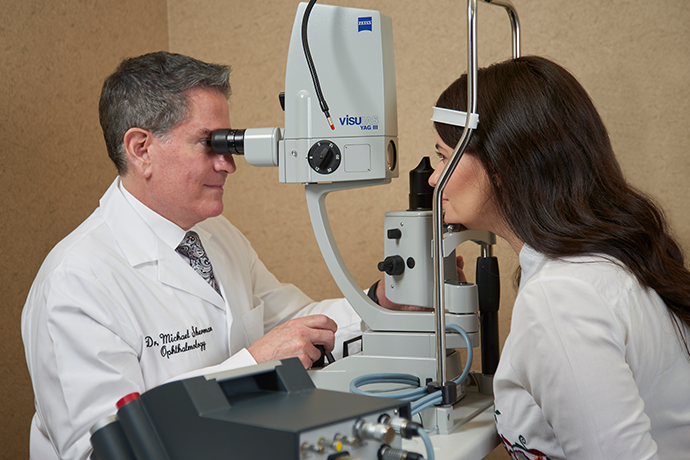What is Glaucoma?
Glaucoma is an eye condition where a buildup of pressure in the eye, called intraocular pressure, damages the optic nerve. The intraocular pressure, IOP, is caused by a build up of fluid within the eye. Typically the fluid drains out of the eye but when fluid is overproduced and drainage is blocked the eye pressure increases. The increase of pressure damages the optic nerve which is responsible for sending images to the brain. This damage causes blind spots and vision loss that is permanent.
Glaucoma is usually genetic and runs in families where it presents in older patients. It can progress so gradually that patients might not even notice the vision loss until they’re at an advanced stage. It is very important to get regular glaucoma screenings so that it can be diagnosed and treated early on. At Physician Eye Care Associations, Dr. Sherman uses the latest technology and medicine to help patients control and manage their glaucoma.

